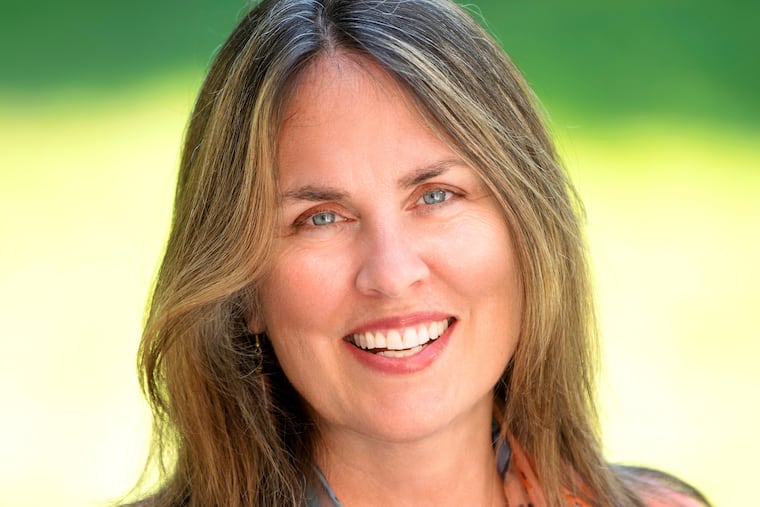A Bucknell professor battled addiction in her 20s. Then she used neuroscience to understand it
Judith Grisel's new book is a narrative of her own addiction experience, a primer on how various drugs affect the brain and a meditation on how neuroscience can help us understand addiction.

At 23, Judith Grisel was in a Minnesota rehab, grappling with the addictions that had defined her life for the previous decade. For the first time, she heard that addiction was a disease, not a moral failing.
As she entered recovery and eventually returned to school, she gravitated to neuroscience to understand her own response to drugs.
Now a psychology professor at Bucknell University, Grisel recently published Never Enough: The Neuroscience and Experience of Addiction, a narrative of her own addiction experience and a primer on how various drugs affect the brain. It cracked the New York Times’ top-10 list of bestselling science books this week.
She recently spoke with The Inquirer about her experience and her research.
How did your own history of addiction lead you to study neuroscience?
By the time I was 23, I had lost pretty much everything after about 10 years of avid use of pretty much whatever I could get my hands on. When I ended up in treatment and heard it was a disease, I, in a kind of naive way, I thought, Disease can be cured; I’ll figure out a cure.
I felt like from my experience, that my response to drugs was different from other people’s. I had a roommate one time who would mete out cocaine like it was gold in a way that I could not understand. She would somehow moderate that. I seemed to have kind of a bottomless desire. I thought there must be some sort of biological explanation for my experience and response.
How can neuroscience help explain addiction?
There’s a correlate of brain activity to everything we do and everything we experience. What is the neural phenotype, or the brain state that predisposes you [to addiction], and how does the brain change as a result? I think understanding those things could help with interventions and preventions. At the very least it helps explain the inexplicable: How do people give up everything for a little baggie of stuff? How do they court death like this?
The first time you start taking any drug, your brain adapts. It does it immediately. That adaptation is always the opposite of the main effect of the drug. So as soon as I drink alcohol, my brain is making me more excitable and more anxious, so that when I get that sedative [from alcohol, the brain compensates].
The more the cells of the brain are bathed in a drug, the deeper the adaptation is. When I got to treatment, I was definitely understimulated in terms of reward and pleasure in that dopamine pathway that we always talk about. All I wanted to do was escape that sort of withdrawal state by getting more drugs. And every time I got the drug, I would make the adaptation stronger.
The longer you go with a drug, the more your brain adapts, and the longer you go without it, the more your brain adapts back.
You’re wary of opioid replacement medications like methadone and suboxone, which research shows give patients a better shot at recovery than abstinence-based treatment. Can you talk about that?
For me, I probably come down a little heavy-handed on the side of abstinence. For me, moderation, I think, is very unlikely. My sort of gold, pie-in-the-sky vision is that people would be able to sort of live [without any drugs]. I have a really rich, full, free life, I think, except that I just can’t pick up [drugs].
My bias is toward the natural state, and this isn’t natural to have [opioid replacement drugs]. So, even though [when you take methadone or suboxone] you’re tolerant, so you’re not getting the big highs, I don’t think it’s anything like the state that you started with. And so that’s my bias.
I don’t think methadone is good, but it’s better than dying of an overdose of heroin. If these are the options, absolutely methadone is an advantage. But giving people a prescription for a substitute opiate and then doing nothing [else] is unconscionable. I think medication can be a big, big help. The goal is to get people to look at themselves and their choices and see if they want to change course.
What has experience with addiction meant for your career in the sciences?
I think being a scientist is a fantastic career for anybody, but especially for a recovering addict. What I sought was this sort of exciting, transcendent, never-know-what’s-going-to-happen-next sort of life. I kind of get that in a research setting. There’s a lot of intrigue, there’s a lot of uncertainty and mystery, there’s a lot of reward. It’s a good fit for people who are novelty-seekers.
I do think most people I know in drug and alcohol research, like, the vast, vast majority, are not in recovery. Which probably reflects the fact that it’s hard to recover -- I got lucky there. But I think that many of them are there because they had family members, they had some firsthand experience. A lot of people go into their fields because they’re trying to understand something personal.
How can neuroscience better help the public understand addiction?
Addiction is increasing, and the drive to escape is obviously an epidemic. So we’re all more or less on the same road. I think the factors that contribute [to the addiction crisis] are really deep and complex and systemic, internally and externally, and it’s in all of our best interests to look at those.